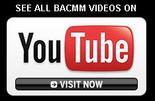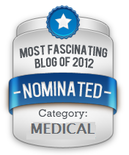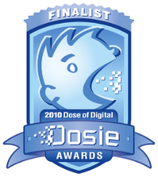Do you get a knot in your stomach when you sit down to pay the bills each month? Wake up in the middle of the night wondering how you’re ever going to get out of debt? Get a feeling of helplessness and hopelessness when you read headlines about the housing crisis, oil prices, soaring healthcare costs, inflation, recession and unemployment?
If you’re feeling worried and anxious about money, you’re not alone. For millions of people, financial stress is eating away at their basic sense of security and well-being. And it’s not just bank accounts that are being drained, but also physical and emotional resources, which in turn impact health, relationships, productivity and happiness.
Most of us believe if we just work harder, think harder and try harder, we can resolve our financial issues. But what if focusing more brainpower and effort in these problems actually gets us even further away from finding solutions? Instead of trying even harder to think our way through these problems, here’s an alternative approach to consider.
A different method for resolving your challenges involves releasing stress and allowing your intuition to help guide your thoughts and actions. By using tools to stop the continual loop of anxiety and fear, we actually free up energy to find new answers to old problems. Even when we can’t control our external situation, creating a balanced connection between the heart and brain helps reduce the internal taxes of scarcity and insecurity and opens new pathways in the problem-solving process.
Here are nine practical and affordable tips for relieving financial stress:
Take advantage of new technology. You may already use a sophisticated computer program to manage your personal and professional finances, but did you know there’s innovative stress reduction software available, too? Much like cell phones, PDA’s and mp3 players make life easier and more enjoyable, there are handheld biofeedback devices that help you relieve stress. Why not use the latest digital tools to improve your quality of life?
Sit down and make a list of what you’re grateful for. It’s hard to feel anxious or scared while focusing on feelings of gratitude. Think about someone you appreciate, then, take a moment in your heart to feel appreciation for them. If you choose to, tell him or her. You’ll be surprised by the new energy you bring back to solving money issues by cultivating gratitude and expressing appreciation.
Approach your financial problems more objectively. If you were going to give advice to a person who was in a similar situation, what would it be? Stepping outside yourself enables you to see things more dispassionately, without being as invested in the outcome.
Shift your focus. Stop and remember the basic conveniences and luxuries you may take for granted. Much of the world lives in poverty and while it may sound simplistic, when we stop to think about someone much less fortunate, it puts our financial situations in a larger wholeness perspective.
Get to the heart of the matter. If you feel like you’re in an endless cycle of worry and angst, try the Cut-Thru® technique to help gradually release the accumulated anxiety caused by financial stress. To gain some immediate relief, you don’t need to sort through all the details of the issues you’re facing; simply address the perceptions, feelings and thoughts that come up while using this technique.
Don’t over-saturate yourself with bad news about the economy. While staying informed is important, taking in so much disturbing news day after day can lead to a growing sense of pessimism. Try to watch or read the financial news without getting lost in a negative mindset and look for stories that help stimulate more creative, optimistic thinking about money.
Don’t keep everything to yourself. Reach out to a friend who can help you gain a clearer perspective, but not necessarily one who will simply sympathize with your pain. Or find an expert you can talk to about your money issues who is knowledgeable and unbiased. Financial advisors and credit counselors can help take off some of the pressure and there are many free resources for financial advice.
Give some money away. It doesn’t matter how much. Whatever the amount, giving to someone in need or to a cause or charity you feel aligned with takes you out of self-centeredness and focuses compassion and caring on someone else. Knowing you have enough to share builds your own sense of personal empowerment.
Don’t punish yourself with blame or shame. Having financial difficulties does not equate to failure. Many times the circumstances are beyond your control. Freeing yourself from these disapproving feelings enhances your perception and intuition, allowing you to think better and more clearly. Despite a sense that things may always be this way, your current condition is not permanent. Change is constant and that includes your finances.
While money issues are real, they don’t have to destroy you. Letting go of stress, even for just a few minutes, can lead towards fresh ideas and new solutions. If you’re looking for greater prosperity and peace of mind, reducing stress is a risk-free financial strategy.
Copyright © HeartMath. Since 1991 HeartMath has been dedicated to decoding the underlying mechanics of stress. HeartMath is internationally recognized for their solutions to transform the stress of change and uncertainty, and bring coherence and renewed energy into people’s lives. Research and clinical studies conducted by HeartMath have examined emotional physiology, heart-brain interactions, and the physiology of learning and performance. Through their research they have demonstrated the critical link between emotions, heart function, and cognitive performance. HeartMath’s work has been published in numerous peer-reviewed journals such as American Journal of Cardiology, Stress Medicine, and Preventive Cardiology, as well as business journals such as Harvard Business Review and Leadership Excellence. HeartMath’s organizational clients include NASA, BP, Duke University Health System, Stanford Business School, Redken, Kaiser Permanente, Boeing, and Cisco Systems, as well as dozens of school systems and thousands of health professionals around the world. To learn more about HeartMath, go to www.heartmath.com.

 RSS Feed
RSS Feed































